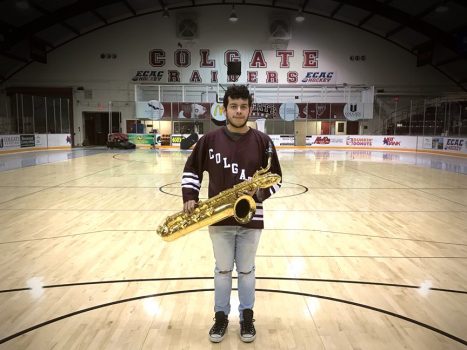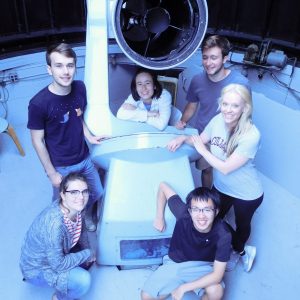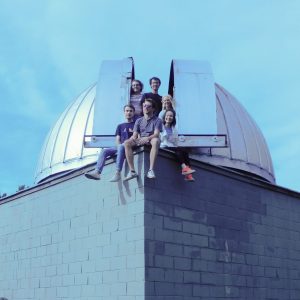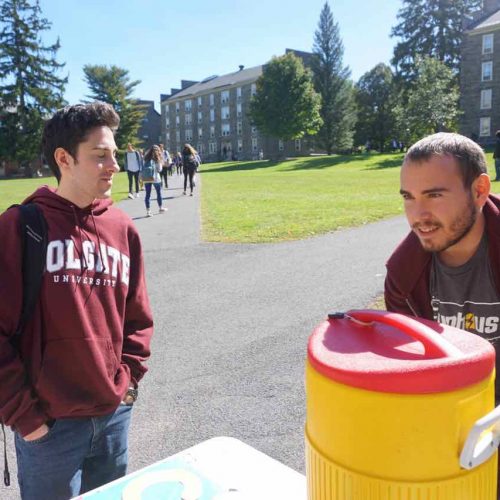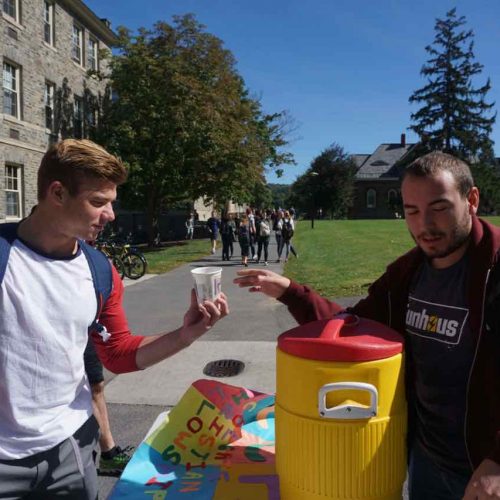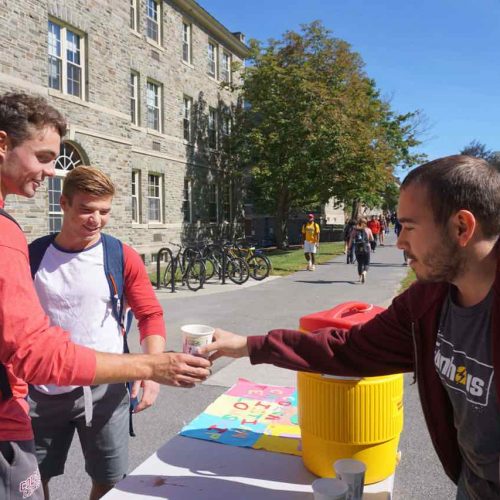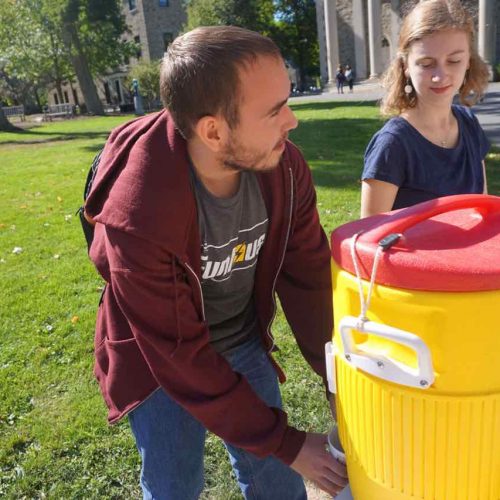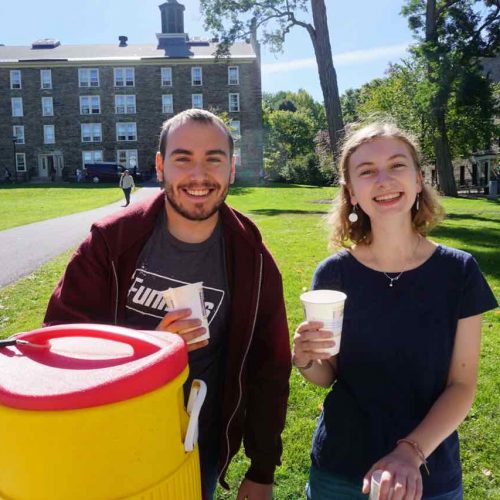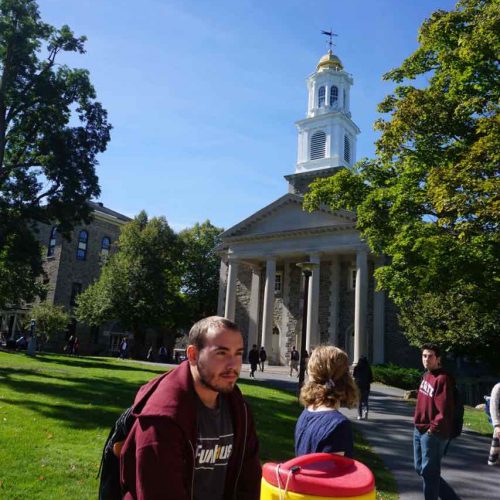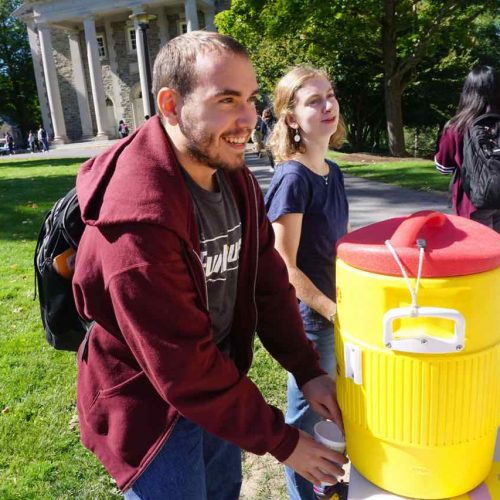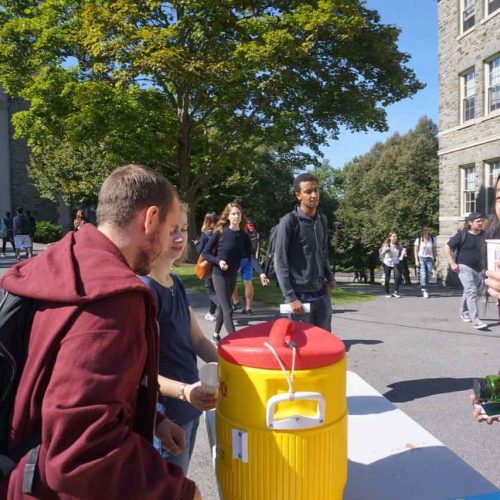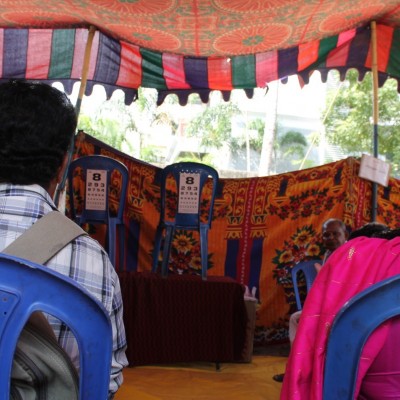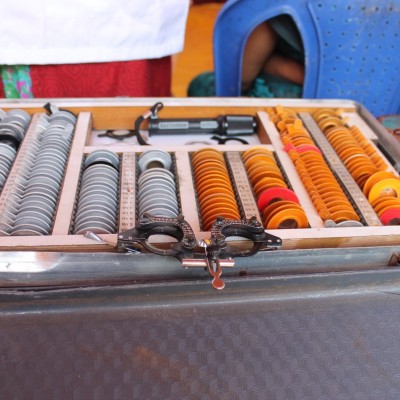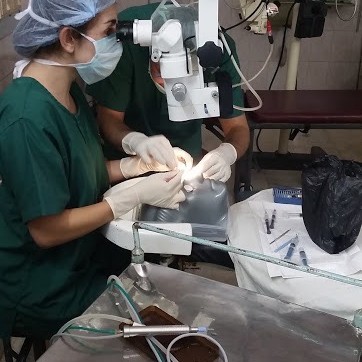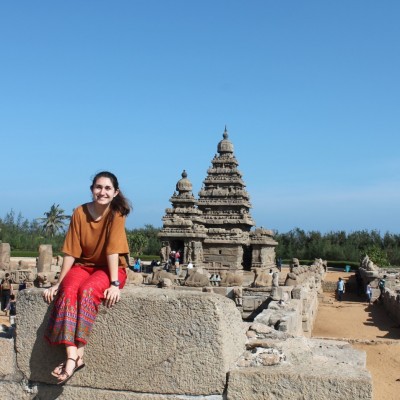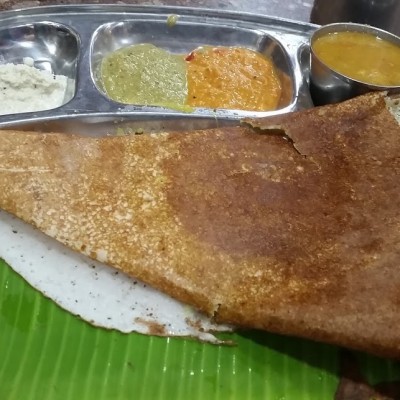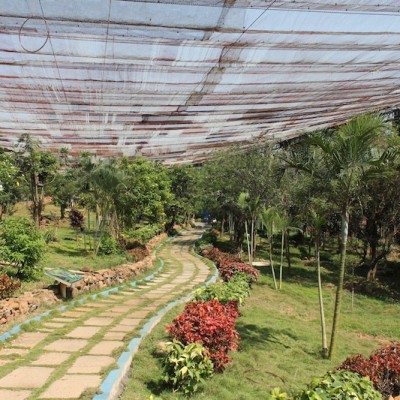
This interview was conducted with Jacob Pilawa, a sophomore in the Alumni Memorial Scholars Program intending to major in Astronomy/Physics. This past summer, Jacob researched quasars with Professor Balonek at Foggy Bottom Observatory.
Could you tell me a bit about your high school experience?
I went to a high school in Cleveland called Saint Ignatius High School. It’s an all-male Jesuit school, so it was pretty unique in that sense. I spent most of my time in high school doing Science Olympiad, robotics, those kinds of STEM extracurricular activities. I was also a diver for a little bit, on the swimming and diving team. I think it was like the high school experience of most students at Colgate, where you’re taking as many AP classes as you can, trying to get college credit, and things like that. I pushed myself pretty hard in high school.
Was there anything in particular that motivated you to work hard?
It was really that I wanted to prove to myself that I could do things. Probably the most important teacher I ever had was named Father Lawrence Ober. He taught my art history class, and you wouldn’t think that would be something that an astronomy/physics major would want to study. But it was the most inspiring class because he really gave me this love of learning and not just love of school. He was very motivational and would always say things like “Charge on,” or “You’ve got this, you know everything.” He taught me a love of learning, not a love of good grades. That is what kept me going during really tough classes. I would tell myself, “Hey, I’m taking this class because I love learning it, I just have to keep going.”
I really found learning fun and looked forward to learning new things, so when I came to Colgate, I decided I wasn’t going to do anything halfway, I would go all out. I would do it, do it well, and love what I’m doing. That’s not to say that I always enjoy hard weeks or finals time, but it’s always in the back of my mind that I’m doing this because I love it. There’s that expression, “Do what you love, love what you do, and you’ll never work a day in your life.” So that love for what I’m learning is what really keeps me going.

Jacob adjusts the telescope in Foggy Bottom Observatory
Can you tell me what kinds of things you’re involved in at Colgate outside of class?
I did research here over this past summer, and now I’m continuing it into the academic year. I’m in Star ‘Gate, which is the astronomy and astrophotography club. I’m in running club- I like running, so why not? And I’m in physics club, of course.
Of the classes you’ve taken, what have been your favorites?
My favorite class so far has been Introduction to Mechanics with Professor Levine in the physics department. In high school physics, you talk about a ball rolling down a hill or something. But, in that class, we took those same concepts and applied them to the movements of the stars and things like that. In a typical problem, instead of a ball going in a circle, we’d have a planet orbiting the sun. Having that real application to things that I love talking about was really great. So that was far and away my favorite class.
What made you decide to conduct research at Colgate this summer?

The computer where Jacob and Professor Balonek collected their data this summer
This comes back to what I was saying earlier about a love of learning and a desire to learn more. Last year, it came time to apply and I was thinking about what I was going to be doing with my summer. I saw that summer research positions opened up at Colgate and I thought that I might as well give it a shot. I was a first-year, so I wasn’t expecting to get anything because there were probably way more qualified people.
I applied to this and a couple others, but this was my top choice. I wrote an essay about why I wanted to do this research and what my future interests are. And then I got the email in February that I’d been selected and I freaked out in the library. I was doing a physics problem set and I was like, “This has to be a joke. I’m going to make money doing things that I love doing in the summer and learn more from it.” I guess I just gave it a shot- it’s better than an office job.
Could you tell me a bit more about what you researched?
This summer we worked on these objects called quasars. Basically, at the centers of super far-away galaxies, there are supermassive black holes: black holes with a mass hundreds of thousands to millions of times our sun. So, these are incredibly big objects, the most massive things we’ve ever discovered in the universe. And in super distant galaxies, around some of them there is this gas and plasma that’s falling into these black holes. Because of things that Einstein did with special and general relativity, this actually shoots out two beams of light from the black hole. We study how that light changes over time. Basically, we’re looking at the centers of galaxies and seeing how their brightness changes.

Jacob: “This is a photo of the object NGC 6946, also called the Fireworks Galaxy. It’s a spiral galaxy 22 million light-years away and is called the Fireworks Galaxy because of how frequently stars undergo a supernova. Over the last 100 years, we’ve observed 10 stars explode in this galaxy. The photo was taken with Foggy Bottom Observatory’s 16″ Cassegrain telescope and FLI CCD camera.”
So, most of my nights this summer, I worked from about 10pm to 5am at this computer. We’d focus on about six objects a night and take pictures of them. We’d get our data from these images and we’d generate curves of their brightness over time. I’m continuing to research that during the academic year. When I find time, I come up here at nights and work. Hopefully, we’re going to write a paper about our findings of a specific object called OJ 287 and then I’ll be presenting at the KNAC (Keck Northeast Astronomy Consortium) Conference in October. That’s at Colgate, so that’ll be pretty cool. This is the research that Professor Balonek has been researching here for the past thirty years, so I’m just carrying on the torch.
Have you thought about how you’re planning on using your AMS research grant?
I have. One of the reasons that I got into astronomy in particular is that I used to be really into photography. I’d see those cool pictures that NASA or the Hubble Space Telescope would take of these cool galaxies and nebulae and things like that. So I did some research about how to do shots of the Milky Way

Jacob: “This is an image I took of Jupiter, the largest planet in our Solar System. It was taken by attaching my camera to the back of our 12” telescope, taking 350+ “frames” of the image, and then “stacking” them together to produce a more refined image. It was my first attempt at something like it.”
or shots of the sky with my camera and I found out that I love that and the concept of being able to look at these things. So what I really want to do is some kind of trip to Europe or the West Coast of the United States- someplace cool- and do a bunch of astrophotography and compile it all into a presentation of some kind. It would help my own skills in producing good images, which we do here. But, it would also just be a really cool thing to do and I’d have something to show for it like, “Hey, look at this really cool picture I took.”
I’m also thinking about maybe doing an observatory tour of Europe because there are really cool observatories there. I’d like to go, look at these observatories, and find out what it is that they specifically do, what they research there, and the kind of technology that goes into it, in case I ever want to go into telescope design. So, it’s either astrophotography or an observatory tour.
Are you planning on studying abroad while you’re at Colgate?
I do want to study abroad. I’m actually trying to see if I can do an astronomy/physics and French double major. Next year, I’m trying to plan out going to an approved program in Paris. I’d like to live in Paris and continue my physics work while immersing myself in that culture and language to improve my skills.
What are some of your favorite things about being a student at Colgate?
Speaking for the physics and math departments specifically, we do almost all of our work together. Most of the learning that I did wasn’t in class, but in tutoring sessions with juniors and seniors or just meeting with my friends to go over a problem set. The way in which people work together here is great, and it’s great to be around people who are as driven as you are. Because at the end of the day, we’re all trying to learn this material and become experts in it. So, it’s not hyper-competitive and people will help you.
There have been times when I’ve asked a friend, “Hey, will you sit down with me and go over this problem set?” and then we’ll sit and talk for two hours about some cool problem that we did. I really like how the students here are willing to work together and want each other to succeed.
I also really like how accessible the professors are. That’s something that I can’t stress enough. Every day, I’ll see Professor Crotty doing research on the fourth floor of Ho, and I’ll stop in to say hi or to ask him about a problem, and he’s more than happy to drop everything that he’s doing and talk to me. I literally just did that earlier today. The accessibility of the professors and the eagerness of the students to work together, that’s what I love about studying at Colgate. And also, it’s pretty.
Are there any things about Colgate that you think could improve?
I wish we’d change the Core Curriculum around a bit. For example, I’m a STEM major, but I still have to take a Scientific Perspectives class. I think we should reshape our Core Curriculum and have it not be as much of a requirement as encouraged. I think Challenges, Legacies, and Communities and Identities are good to keep, but I’m not sure if STEM students are going to get anything out of a Scientific Perspectives class.
I also think we need to diversify our Core, in the sense that most of the authors that we’re reading are from Europe, they’re white men, things like that. That’s such a limiting scope of perspectives that we’re getting. Of course, that trend is broken in some classes, but for the most part I feel like we’re reading Eurocentric literature. Our claim is that we’re preparing our students for the global world, but how can we do that if we’re only reading from Europe?
I’m also not a fan of the Global Engagements requirement. I think if you study abroad, you should be able to get the Global Engagements requirement, but that’s not always the case. I think if you take a foreign language for an extended period of time, you should be able to get the Global Engagements requirement. I don’t think we have to have this separate class because that means if I take a Core every semester, into my junior year I’ll be taking a Core. My junior year, I want to be focusing on my major, what I’m interested in.
Have you thought about what you’d like to do after Colgate?
I think I like talking to people too much to not teach. I’d like to teach at some level in physics and astronomy. But on the same token, as evidenced by this summer, I also really like researching. So, I think my heart does belong in academia, but I’d like to do it at a small college. I like teaching people, I like being taught, I like the college environment. Everybody is here to learn- I really like that and I’m really inspired by that.

Jacob: “This is an image of the galactic core of the Milky Way, our own galaxy, taken near the Foggy Bottom Observatory. The structure is actually a spiral arm of our own galaxy and the tan region is a combination of dust and a high-density region of stars.”




